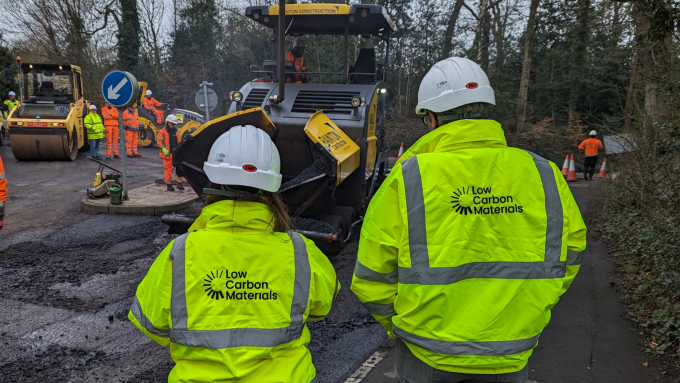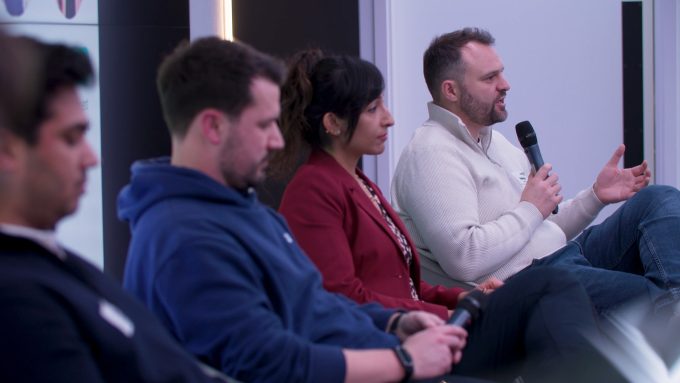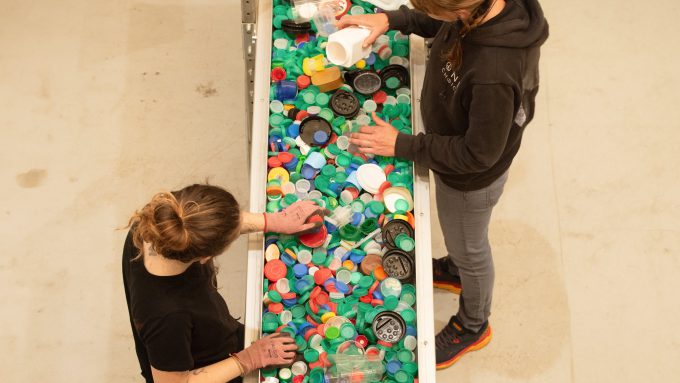
Meet the Academic using AI to optimise logistics networks

“Technology such as Artificial Intelligence can play a major role in solving some of society’s most challenging issues around enhancing social responsibility and increasing sustainability,” says Arijit De, an assistant professor in management science from the University of Manchester.
“I’m passionate about the power of research to explore important topics in greater detail, and address real-world problems.”
Arijit is a supply chain logistics and transport specialist who started his career as an industrial engineer with a strong background in research and computer programming. He worked to address supply chain issues such as optimising schedules, and now develops advanced Artificial Intelligence models and algorithms that help to make logistics more efficient, particularly in the areas of manufacturing and food deliveries coming by road and sea.
This spring sees Arijit begin work as one of Connected Places Catapult’s Researchers in Residence, focusing on developing best practice around supply chains within the maritime sector, and helping to contribute to the Catapult’s work more generally around maritime and ports. His project is titled ‘Investigation of Fuel Bunkering and Electric Vessel Charging Operations at UK Ports’.
Arijit has also recently been involved in the Freight Innovation Cluster, working with others from the Catapult on new ideas around supply chains and last mile logistics.
His academic career began in 2013 at the Indian Institute of Technology Kharagpur where he dealt with problems associated with port logistics, shipping and global supply chain networks. He later worked at the University of Hong Kong to extend his research around maritime operations and international logistics.
Seven years ago he came to the UK to work as a project researcher at Loughborough University, investigating sustainable freight transportation, and developed powerful mathematical models and machine learning algorithms to solve real-world supply chain problems. He then moved to Newcastle University Business School to become an assistant professor in operations management.
He holds a PhD in Industrial and Systems Engineering, and a Masters of Technology in Industrial Engineering and Management.

Salmon from Norway and produce from Northumberland
During his two years in Newcastle, Arijit led a project called Valumics which looked to better understand food supply chains and network dynamics. It focused on various supply chain operations such as inventories, processing and transportation of fresh salmon from Norway to several wholesalers across Europe. The tool he developed considered the impact a sudden rise in demand for the product would have on the supply chain, and alerted other stakeholders in that chain to the knock-on effects of scaling up production.
“Because salmon is a perishable product it is very important to study demand, supply and transportation uncertainty, but also to know how to deal with an increase in by-products or residuals that comes from farming fish which have to be sent for processing,” he explains.
Arijit joined the University of Manchester in 2021 and embarked on another supply chain logistics project, this time for a neighbourhood food and drinks collective based in Northumberland – called Food & Drink North East – which has created an e-commerce business called Local Heroes, that aims to promote local traders and create job opportunities for the region.
“Rural food producers face enough challenges when competing against supermarkets with higher profit margins, so we have tried to help them to organise their supply chain logistics as best they can,” Arijit explains.
“We developed a sophisticated AI tool that helps businesses to improve their efficiencies and reduce transportation costs and their carbon footprints by identifying which producers can collaborate to consolidate their deliveries, depending on their location and the types of products they are sending.”
“We identify those producers who are a perfect match to share vehicles when collecting products from different suppliers and sending it to customers, while ensuring that vehicle space utilisation is enhanced, and the overall number of trips can be reduced.”
Helping manufacturers reduce costs
Arijit has also been working alongside various manufacturing organisations to develop AI tools to help them reduce their environmental footprint. He has collaborated with a furniture maker that produces environmentally conscious items to order; sourcing raw materials from across Europe.
The AI tool helped the client understand its carbon footprint of transporting goods just-in-time, and balanced this against the added financial cost of buying in more material in advance and storing it on site. The tool also considers the likelihood of delays in receiving materials – which can impact the supply chain – and offers suggestions as to whether it will be prudent to source an alternative supplier or use different transport routes. Carbon calculations of the fuels used for different freight options – be they by land or sea – are also factored into the algorithm.
Arijit says AI models are being used widely across many sectors, from transport to healthcare and housing, but that many leaders from the corporate world are still not aware of the value such tools can provide. He adds that one of the biggest challenges for those in the AI community is addressing the skills gap. “Plenty of young people are quite interested in AI, but building new systems from scratch does require a great wealth of knowledge. Some sectors may also be less lucrative for developing new technologies, especially if the people in charge are fairly conservative to new ideas. But we are slowly seeing more people moving towards the use of AI in their work.”

Aligning with the Catapult
Arijit got in touch with Connected Places Catapult last year to talk about his work around developing AI models for the maritime sector, and was successfully awarded a Researcher in Residence project worth £50,000.
“We had very fruitful discussions within the maritime domain, how it is currently operating and the challenges that could be overcome using AI in terms of refuelling ships while exploring alternative fuel oils and the recharging of electric vessels. I plan to produce a report, and also further develop AI tools that could be used by different UK ports.”
He is also working on research that considers latest developments in last mile logistics in cities, to help make deliveries more efficient. “Last mile is an extremely complicated subject as you have an increasing number of e-commerce companies entering the market and adding to traffic congestion. How we help them to navigate urban areas is important in order to reduce the chances of products getting delayed and to help to cut pollution.”
Another area of focus for Arijit is around rural logistics, and he is exploring a novel idea that involves making better use of passenger buses, to allow food producers to book slots on scheduled services in order to transport smaller items to market. Customers would book their slots using a system built on an AI model that predicts whether there is likely to be room on a particular bus.
“We know that many rural buses don’t have much demand for travel during off peak periods, and rural food producers are keen to reduce their transport costs. So by creating a network of ‘cargo buses’, food producers can book their goods onto passenger buses at off-peak times.”
Last autumn, Arijit embarked on a four year study to explore the potential of the cargo bus alongside Northumberland County Council, Food & Drink North East and the National Innovation Centre for Rural Enterprise.
A positive outlook
AI technologies promise to deliver a wealth of social and sustainability gain, Arijit says, and he adds that his career as an academic gives him the chance to explore and develop his interest in this area.
“Being a Researcher in Residence also gives me great opportunities to interact with other academics and companies, and try to help ensure the work we do can be used in the real world.”
“I have a very positive outlook and I’m sure that digital technology such as AI will continue to play a big role in solving some of the complicated challenges we face, such as congestion and climate change.”
Find out about our latest Researchers in Residence scheme. To be alerted about opportunities at Connected Places Catapult, join our Academic Network.





